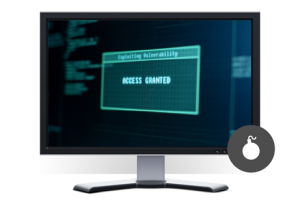English | Deutsch
AV-Comparatives releases Summary Report of 2020 Consumer Main-Test Series
17 consumer security programs tested for protection and speed impact in the long term
Austrian antivirus testing lab AV-Comparatives has released its annual Summary Report for consumer security products. This includes results of all the individual tests carried out during 2020, a user-interface review for all 17 tested products, and awards given to individual programs in various categories.
All tested products received the test lab’s Approved Security Product Award. This is given to all products that demonstrated they can provide competent protection against a wide variety of threats, without unduly affecting the computer’s performance.
he award is a certification of an effective and reliable product.
https://www.av-comparatives.org/wp-content/uploads/2021/01/avc_sum_202012_en.pdf
Tested products were: Avast, AVG, Avira, Bitdefender, ESET, F-Secure, G Data, K7, Kaspersky, McAfee, Microsoft, Norton LifeLock, Panda, Total AV, Total Defense, Trend Micro, and Vipre.
Product of the Year
AV-Comparatives’ prestigious award goes to the program with the highest scores across all the test types. It is a demonstration of top quality in all categories.
The 2020 Product of the Year Award goes to
Kaspersky
Outstanding Security Product
The Outstanding Product Award goes to two vendors whose products also reached the highest award level (Advanced+) in every single test in the Main Test Series. This is proof of excellence across the board.
Bitdefender
ESET
Top-Rated Product
Products that achieve high scores across all the test types are rewarded with Top-Rated Product Awards. These demonstrate that a program has achieved a high standard across all the test types.
Avast
AVG
Bronze, Silver and Gold Awards for Categories
For each individual test type, Bronze, Silver and Gold Awards go to the products that achieved the highest scores. The test types are:
Real-World Protection Test – this checks protection against Internet-borne threats
Gold: Kaspersky
Silver: Avast and AVG
Bronze: Microsoft
Malware Protection Test – this verifies a program’s ability to detect malicious files
Gold: G Data
Silver: Bitdefender, ESET
Bronze: Kaspersky
Performance Test – a check on how much a security product slows down the PC
Gold: ESET
Silver: Kaspersky
Bronze: Bitdefender
False-Positives Test – this assesses whether each program is prone to false alarms
Gold: K7
Silver: McAfee
Bronze: Kaspersky
Advanced Threat Protection Test – this optional test looks at protection against targeted attacks
Gold: Kaspersky
Silver: Bitdefender, ESET
Bronze: Avast, AVG
As usual, the Summary Report includes a user-interface review of all the tested products. This provides a description of what each program is like to use in everyday scenarios. Topics covered include installation, security alerts, scan options, quarantine, logs, access control, and (where applicable) firewall.
“We congratulate all participants, who have consistently shown very good results throughout the year!“, says Andreas Clementi, co-founder of AV-Comparatives. “Each test shows the strength of the various products in that category. To be at the top overall, a product must be top-ranked in most categories. We are happy that all participants protected and performed very well.”
Peter Stelzhammer, also a co-founder of AV-Comparatives, added “IT security is not only important for enterprises. Consumers also need to be protected against cyber crime. Wedding photos are as important to them as budget numbers are to businesses. Our report gives an overview of the ‘crème de la crème’ of anti-virus software.”
https://www.av-comparatives.org/wp-content/uploads/2021/01/avc_sum_202012_en.pdf
AV-Comparatives is based in Innsbruck, Austria, and has been performing rigorous independent tests of security software since 2004. These systematic tests help antivirus vendors to find any weaknesses in their programs, and so improve their protection and performance.
AV-Comparatives veröffentlicht Jahresreport für Antivirus und Internet Security Software 2020
17 Consumer-Security-Programme auf Schutz und Geschwindigkeit im Langezeit-Test
Das österreichische Antiviren-Testlabor AV-Comparatives hat seinen jährlichen Jahresbericht für Consumer Security Produkte veröffentlicht. Dazu gehören die Ergebnisse aller im Jahr 2020 durchgeführten Einzeltests, eine User-Interface-Überprüfung für alle 17 getesteten Produkte und Auszeichnungen für einzelne Programme in verschiedenen Kategorien.
Alle getesteten Produkte erhielten den Approved Security Product Award des Testlabors. Dies wird allen Produkten gegeben, die bewiesen haben, dass sie einen kompetenten Schutz gegen eine Vielzahl von Bedrohungen bieten können, ohne die Leistung des Computers unangemessen zu beeinträchtigen. Die Auszeichnung ist eine Zertifizierung eines effektiven und zuverlässigen Produkts.
Getestet wurden: Avast, AVG, Avira, Bitdefender, ESET, F-Secure, G Data, K7, Kaspersky, McAfee, Microsoft, Norton LifeLock, Panda, Total AV, Total Defense, Trend Micro und Vipre.
Produkt des Jahres
Die prestigeträchtige Auszeichnung von AV-Comparatives geht an das Programm mit den höchsten Punktzahlen in allen Tests. Es ist eine Demonstration von Top-Qualität in allen Kategorien.
Der 2020 Product of the Year Award geht an
Kaspersky
Outstanding Security Product
Der Outstanding Product Award geht an zwei Anbieter, deren Produkte auch in jedem einzelnen Test der Main Test Series die höchste Auszeichnung (Advanced+) erreicht haben. Das ist ein Beweis für Exzellenz auf der ganzen Linie.
Bitdefender
ESET
Top-Rated Product
Produkte, die über alle Testtypen hinweg hohe Werte erzielen, werden mit Top-Rated Product Awards belohnt. Diese zeigen, dass ein Programm über alle Testtypen hinweg einen hohen Standard erreicht hat.
Avast
AVG
Bronze, Silber und Gold Awards für Kategorien
Für jeden einzelnen Testtyp gehen Bronze, Silber und Gold Awards an die Produkte, die die höchste Punktzahl erreicht haben. Die Gewinner der Kategorien sind:
Real-World Protection Test – dies prüft den Schutz vor Bedrohungen aus dem Internet
Gold: Kaspersky
Silber: Avast und AVG
Bronze: Microsoft
Malware Protection Test – dies überprüft die Fähigkeit eines Programms, schädliche Dateien zu erkennen
Gold: G Data
Silber: Bitdefender, ESET
Bronze: Kaspersky
Performance Test – Überprüfung, ob ein Sicherheitsprodukt den PC verlangsamt
Gold: ESET
Silver: Kaspersky
Bronze: Bitdefender
False-Positives Test – Dies bewertet, ob jedes Programm anfällig für Fehlalarme ist
Gold: K7
Silber: McAfee
Bronze: Kaspersky
Advanced Threat Protection Test – dieser optionale Test untersucht den Schutz vor gezielten Cyberattacken
Gold: Kaspersky
Silber: Bitdefender, ESET
Bronze: Avast, AVG
Wie üblich enthält der Jahresbericht eine Handhabungsprüfung aller getesteten Produkte. Dies bietet eine Beschreibung, wie jedes Programm im alltäglich Gebrauch zu handlen ist. Zu den Kategorien gehören Installation, Sicherheitswarnungen, Scan-Optionen, Quarantäne, Protokolle, Zugangskontrolle und (falls zutreffend) Firewall.
“Wir gratulieren allen Teilnehmern, die das ganze Jahr über durchweg sehr gute Ergebnisse gezeigt haben!”, sagt Andreas Clementi, Mitbegründer von AV-Comparatives. “Jeder Test zeigt die Stärke der verschiedenen Produkte in dieser Kategorie. Um an der Spitze insgesamt zu sein, muss ein Produkt in den meisten Kategorien Top-Platzierung aufweisen. Wir freuen uns, dass alle Teilnehmer guten Schutz geboten und sehr gut abgeschnitten haben.”
Peter Stelzhammer, ebenfalls Mitbegründer von AV-Comparatives, fügte hinzu: “IT-Sicherheit ist nicht nur für Unternehmen wichtig. Auch Endverbraucher müssen vor Cyberkriminalität geschützt werden. Hochzeitfotos sind für Endverbrauchen genauso wichtig, wie Budgetzahlen für Unternehmen. Unser Bericht gibt einen Überblick über die Crème de la Crème” der Antivirensoftware
https://www.av-comparatives.org/wp-content/uploads/2021/01/avc_sum_202012_en.pdf
AV-Comparatives hat seinen Sitz in Innsbruck, Österreich, und führt seit 2004 strenge unabhängige Tests von Sicherheitssoftware durch. Diese systematischen Tests helfen Antivirus-Anbietern, irgendwelche Schwächen in ihren Programmen zu finden, und verbessern so ihren Schutz und ihre Leistung.









































